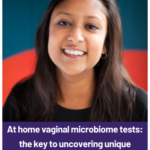Eric Dy
Co-Founder and CEO, Bloomlife
Eric Dy, PhD is co-founder and CEO of Bloomlife, a women’s health company designing remote prenatal care solutions to improve the health of women and babies.
Eric brings unique perspective on the opportunities and challenges in emerging healthcare technologies and delivery models informed by multidisciplinary technical expertise leading business development for Europe’s leading R&D institute, imec.
Eric earned his BSc in Bioengineering from Cornell and his MSc and PhD in Biomedical Engineering from UCLA.
Bloomlife has been recognized for their pioneering work winning Fast Company World Changing Ideas, Johnson & Johnson Quickfire Challenge, Richard Branson’s Extreme Tech Challenge, MedTech Innovator Award, and speaking at the White House Precision Public Health Summit.
Eric Dy, PhD is co-founder and CEO of Bloomlife, a women’s health company designing remote prenatal care solutions to improve the health of women and babies.
Eric brings unique perspective on the opportunities and challenges in emerging healthcare technologies and delivery models informed by multidisciplinary technical expertise leading business development for Europe’s leading R&D institute, imec.
Eric earned his BSc in Bioengineering from Cornell and his MSc and PhD in Biomedical Engineering from UCLA.
Bloomlife has been recognized for their pioneering work winning Fast Company World Changing Ideas, Johnson & Johnson Quickfire Challenge, Richard Branson’s Extreme Tech Challenge, MedTech Innovator Award, and speaking at the White House Precision Public Health Summit.







